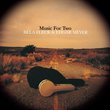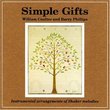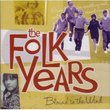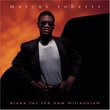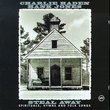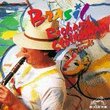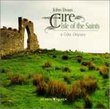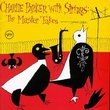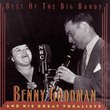| All Artists: Stan Getz Title: Bossas & Ballads: The Lost Sessions Members Wishing: 3 Total Copies: 0 Label: Verve Original Release Date: 1/1/1989 Re-Release Date: 9/9/2003 Genres: International Music, Jazz, Pop Styles: South & Central America, Brazil, Cool Jazz, Latin Jazz, Modern Postbebop, Bebop Number of Discs: 1 SwapaCD Credits: 1 UPCs: 602498010983, 0602498010983 |
Search - Stan Getz :: Bossas & Ballads: The Lost Sessions
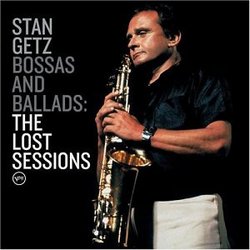 | Stan Getz Bossas & Ballads: The Lost Sessions Genres: International Music, Jazz, Pop
There has been no lack of previously unissued material by the late Stan Getz coming out on CD, but the opportunity to get a further taste of the great tenor saxophonist's exceptional final period is not to be passed on. Re... more » |
Larger Image |
CD DetailsSynopsis
Amazon.com There has been no lack of previously unissued material by the late Stan Getz coming out on CD, but the opportunity to get a further taste of the great tenor saxophonist's exceptional final period is not to be passed on. Recorded two months before his death in 1989 (and two years after the brilliant club dates documented on Anniversary and Serenity), Bossas and Ballads finds him in top form, continuing his memorable association with pianist Kenny Barron. Produced for A&M by Herb Alpert, but shelved in favor of the synthesizered Apasionado, this is vintage Getz: cool and relaxed but possessed of a sneaky explosive power. The man's lyricism could be devastating, and knowing he would be soon gone adds to the potency of his expression on songs such as "Sunshower" (one of five tunes by Barron), Mal Waldron's "Soul Eyes" and Sam Rivers' "Beatrice." A quarter century after spearheading the bossa nova movement in America, he brings a bit less lilt to the form, but more body, never resting on his inventions. --Lloyd Sachs Similarly Requested CDs
|
CD ReviewsBest Getz ever? Jan P. Dennis | Monument, CO USA | 10/11/2003 (5 out of 5 stars) "That would really be something: The finest record from one of jazz saxophone's all-time greats. Could it actually be?Yes.Why?There's magic in the air. This is his first sober session--ever. He's got his hottest, most sympathetic band (Kenny Barron, piano; George Mraz, bass; Victor Lewis, drums). He's got great material to sink his teeth into. Let's start with the band. I lamented the breakup in the late 80's of perhaps the greatest post-bop unit ever, Bobby Watson's Horizon. The reason for their dissolution is now evident: Victor Lewis became available for Getz's drum chair, and emerged as his most simpatico drummer ever. Lewis has always been under appreciated. One of the deftest, most supple, and subtlest jazz drummers in the history of the music, he is absolutely perfect for this band. Likewise, it's nearly impossible to imagine anyone better for the bass chair than George Mraz. Possessed of a burnished, rich tone, absolutely perfect intonation, monster chops, deep swing, incredible musicality, and a focused yet relaxed approach to his instrument, he is the anchor around which everyone else, especially Getz and Barron, is freed up to practice their dancing, lilting magic. If you don't believe he is among the greatest jazz bassists every, simply listen to his astounding solo on "Spiral." But perhaps even more importantly, he never inappropriately intrudes, content to use his instrument to be the means by which the stars, Getz and Barron, are enabled to shine with maximum intensity. Kenny Barron, here, emerges as perhaps the reigning jazz keyboard accompanist. One need only listen to his heartbreakingly beautiful solo at the end of "Soul Eyes" to understand that this man is among the finest jazz pianists ever. He always solos thoughtfully, though passionately, with a wonderful architectural conception and precision execution.But there's a whole lot more going on here than just impeccable musicianship. This group locks into ensemble playing with the ease and mastery of players who listen intently and converse with wit and profundity. The phrase that keeps coming back to me is "ease of expression." You get this level of musical brilliance only with the absolute top players put into a setting that allows them complete freedom of expression. Make no mistake, this is not about pyrotechnics. No. Something much more profound, much more difficult, is going on here. Timelessness. Classicism. Joy. The high point, musically, is Mal Waldron's fabulous tune, "Soul Eyes," which the leader, amazingly, due to its prominence as a jazz standard, had apparently never heard before this session. The tune perfectly fits Getz, with its beautiful, haunting melodic line, its deep though unsentimental romanticism, and its wonderful opportunity for improvisation. Getz, not surprisingly, makes it entirely his own, and the standard against which all other performances will forever be measured. I can say without hedging that the band's rendition of this tune represents one of the finest moments in the history of jazz. Getz' solo, certain one of his finest on record, plumbs the depths of this gorgeous tune and reveals melodic nuances and riches never before uncovered in it. Interestingly, Getz sits out for the final two-and-a-half minutes, letting Barron have his crack at it. And why not? He's said, magnificently, all he wants to say, and he graciously lets his playing partner put his indelible stamp on it. But every other tune on this magnificent disc approximates or achieves this impossibly high standard. Personal favorites include the rhythmically compelling "Feojoada," a brisk samba, "The Wind," a somewhat neglected Russ Freeman (not the jazz lite guitarist) gem, and "Beatrice," a stunningly beautiful (and unlikely) composition from free-jazzer Sam Rivers.I've put off commenting on the leader's playing because I wanted to save the best for last. We all know Stan Getz was an absolute monster of the tenor sax, perhaps the greatest ever. Somewhat eclipsed by the long shadows cast by his contemporaries John Coltrane, Sonny Rollins, Pharoah Sanders, and to a lesser extent, Dexter Gordon, I believe he was unfairly rated slightly below the giants because he wasn't as expressionistic as them at a time when free-jazz blowing was the signature move of Important Sax Practitioners. Plus, he was too popular, achieving nearly pop-cult status during his bossa nova phase. Yet, except for Pharoah Sanders--and this is entirely a matter of taste, in my view--Getz was the absolute master of tonal expression on his instrument. And I've never heard him in finer voice. He makes his sax, by turns, sing, moan, cajole, implore, sweet-talk, whisper, instruct, seduce. His basic MO is haunting lyricism, tinged with longing and subdued joyousness deftly proclaimed in the face of sorrow. No one, ever, in the history of jazz, has had a wider range of expression on tenor sax. No one, ever, has routinely gotten such poignancy from his instrument. If he'd never recorded another record, on the strength of this session alone he would go down as among the finest players of the tenor sex. The man's range of expression is simply astounding.OK, here's the deal. This may well be the finest jazz recording ever made. I can't stop listening to it. It hasnt left my disc player for weeks. It blew me away from the opening bars, and has never ceased to work its magic on me, despite repeated listenings. I'm sure I'll be as excited about this disc a decade hence as I am now. Absolutely not to be missed." Laid back ballads and new bossa nova rash67 | USA | 09/25/2003 (4 out of 5 stars) "Mellow, like aged cognac. Stan's best posthumous album (to date)! More than a decade now after his death the old trooper still keeps cranking them out! Stan Getz, with the most beautiful sound and best technique in Jazz and his buddy Kenny Barron, "the other half of his heart", arguably the best piano accompaniest in Jazz, et al. So how is it? Herb Alpert left this one in the can and released "Apasionado". A mistake. This record is much better, no violins, less New Age, less production - just pure mainstream quartet jazz. Stan is in good form, technically the recording is lush, sharp and full. There is communication, on a deep level, of subtle, ever-changing emotions. I like the ballads, "The Wind", "Soul Eyes", "Yours and Mine". "Beatrice" and "Sunshower" are warm and pleasant. Getz wanted to showcase the compositions of his friend Kenny Barron, 5 songs are Barron's. Barron is a great accompaniest, perfect fit for Stan, but he is less wonderful as a composer. The Bossa nova /Samba beat is there, but he's doesn't have the memorable melodies of Jobim. Some of his compositions meander a bit and lack the melodic line that Getz loved to flirt with. "Sunshower" is Barron's best. With Stan, the playing is so beautiful you hang on every golden note. Whether playing at a whisper, or blasting it out, Stan is always in control of his tone. Molding and sculpting. More control than anyone I know. That's why he's "The Sound"! It was mistaken for "sweet" but what it really is - spectacular technique. In his youth, Stan Getz copied Lester Young's sound and then developed it further. Dozens imitate Coltrane. Who is trying to play the Stan Getz sound today? Who will develop that sweet control? As John Coltrane said of Getz "We'd all play like that... if we could". Curiously, very Cool and laid back, this CD is somewhat less emotive than either "Anniversary" or "People Time" which came out in the same period. A pleasant album, that, like cognac, gets better with age and repeated listening. Very well played. The best new releases for Stan, wonderful Stan Getz for the Ages. A great addition to your Getz collection, ranks with "Anniversary" or "Getz/Gilberto", well worth your money. Unlike many modern musicians who make one or two great albums and little else of merit, Getz got better toward the end of his life. In his last decade, this album & Anniversary stand out as best of his best period. I can only hope that someone else has squirreled away more Stan Getz for later release. Stan, wherever you are, Keep em coming!" Stan Getz is a Phenomenon FePe | Denmark | 01/14/2004 (5 out of 5 stars) "That is what the heading says in the liner notes, at least. But I think it's true. John Coltrane once said that if he could, he would play like Getz. But what is so fascinating about him?I am especially attracted to the soft tone coming right from his heart, and also his outbursts of clear tones. In his last years, he had developed this to the fullest. The producer, Herb Albert, put it this way: "Stan had 'it'. 'It' meant going beyond riffs, telling complete stories with a beginning, middle, and end. 'It' meant being brutally honest, putting his emotions on the line. Stan had the whole tool kit."The album is a mix of bossas and ballads, hence the title. Five of the tunes are written by the pianist, Kenny Baron, who at the time of the recording in 1989 had become an indispensable part of Getz. These tunes have a special atmosphere, unlike the regular bossa nova tunes, but it suites Getz very good. The ballads are a perfect choice for Getz' sound and they are my favorite of what Getz plays.I would like to say a thing about Kenny Barron's playing, too. What he brings to this sessions is an inventiveness that few could copy, and a precise feel for rhythm, as well as a lovely sound for harmony. His notes are totally clean and precise, a sound that perfectly matches the softness of the saxophone. A wonderful album!"
|

 Track Listings (9) - Disc #1
Track Listings (9) - Disc #1